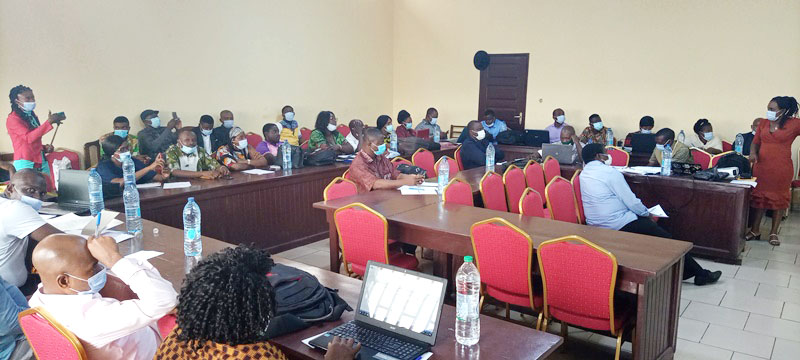By Andrew Nsoseka & Neville Mesumbe
The United Nations Populations Fund, UNFPA, in partnership with the Southwest Regional Delegation for Public Health, organised a two-day workshop on November 26 and 27, aimed at assessing the magnitude of maternal and prenatal mortality in the Region.
The stakeholders equally evaluated the impact of actions taken so far, and how it has impacted the curve. They stressed the need to reduce maternal and child mortality rate which has been increasing in the region.
According to the Southwest Regional Delegate for Public Health, Dr Zachaeus Ebongo, the situation in the region is not different from that of other regions. He explained that, so far this year, the Southwest region has recorded 432 maternal deaths, out of 100,000 live births. “Our target is to have less than 70 children die, out of 100,000 live births.”
The Regional Delegate said some causes of the deaths are as a result of excessive bleeding during and after delivery, complications during child bearing, malaria, HIV and AIDS.
To mitigate the mortality rate, the health practitioner, say there is need to create awareness, adopt a multi-sectorial approach and to lobby for more material and financial resources to make sure that the programmes are well implemented.
“If we put all these stakeholders together and we address all the issues surrounding the direct and indirect causes, we would be able to mitigate the causes of maternal and prenatal mortality within our region,” Dr Ebongo said.
Atanga Anye Louis, a Public Health Specialist working at the Buea Health District stated: “We have been able to review all maternal and neonatal deaths and we have had the opportunity to follow up the recommendations taken to see that they are implemented. We have witnessed a slight reduction since the new Neonatology Ward went operational at the Buea Regional Hospital.
‘Men of God’ Accused Of Triggering Maternal Mortality Rate
Atanga Anye Louis stated that one of the reasons for the increase of maternal mortality rate in the region is as a result of the rigid attitude of some clients and pregnant women, who think that medical problems have to be solved spiritually.
“Some clients or pregnant women will not want to follow the normal healthcare delivery and what is required of them. They would want to see with their Pastors or Men of God and it is actually a challenge,” Atanga said.
He further regretted that, after denying medical assistance, it is only at the end that the church will push to the hospital seeking medical assistance. “We are trying to make the Men of God understand that what is health related, should be directed to health. During our reviews, we have seen so many cases where maybe the baby or the mother ends up dying as a result of a belief that ‘my man of God told me that I am not going to be operated upon’,” he narrated.
In a press release, the UNFPA stated that, according to Demographic Health survey of 2011, the SWR was fourth in the country in terms of the number deaths of children under 5years. “It is on this premise that the World Bank Pandemic Emergency Financing Facility (PEF) is stepping in to provide financial support to enable the SWR in particular and Cameroon as a whole meet up with the specific objectives of SDG3…”
According the UNFPA, the objectives of the training is to, by 2030, bring the global maternal mortality ratio below 70 per 100,000 live births; eliminate preventable deaths of new-borns and children under 5 years of age, with all countries having to seek to reduce neonatal mortality to 12 per 1,000 live births at most and under-five mortality to 25 per 1,000 live births at most; ensure access to sexual and reproductive health care services for all, including family planning, information and education, and ensure that reproductive health is taken into account in national strategies and programs.

1 comment
Can you be more specific about the content of your article? After reading it, I still have some doubts. Hope you can help me.